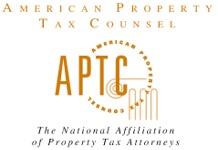October 18, 2024
By: Nicholas W. Vitti Jr. and Jaimie L. Russell
The Connecticut Supreme Court is set to hear arguments on November 4, 2024, and issue a decision on a significant case that could impact property tax appeals for properties assessed at over $1 million. The case, which involves the City of Danbury and several commercial property owners, could have far-reaching implications for property owners statewide.
As this decision does not affect properties assessed below $1 million, the appeals process for such properties remains unchanged. Property owners with properties under $1 million can still appeal their assessments without needing to comply with the specific statutory requirements at issue in this case.
Understanding the Current Law: Connecticut General Statutes § 12-117a(a)(2)
In 2022, Connecticut enacted a revision to General Statutes § 12-117a(a)(2), requiring that property owners appealing property assessed at $1 million or more file with the court an appraisal completed by an individual or company licensed to perform real estate appraisals in the state within 120 days of filing a tax appeal. This appraisal requirement is intended to streamline appeals by ensuring the court has a substantiated assessment from the outset. The court can grant an extension if the property owner requests it before the deadline and demonstrates good cause.
If the property owner does not meet the filing deadline or obtain an extension, the statute grants the court the option to dismiss the appeal. The goal is to ensure that only those appeals with substantiated claims, backed by timely appraisals, proceed to a hearing.
Details of the Danbury Case
The property owners involved in the Danbury case missed this critical appraisal deadline, even in cases where extensions were granted. The Superior Court subsequently dismissed their appeals, ruling that failure to meet this requirement deprived the court of statutory standing – a concept central to the current appeal. Statutory standing means that a party’s right to bring a case is determined by specific legislative criteria. Without fulfilling that criteria (such as meeting the appraisal filing deadline), the court does not have the authority, or jurisdiction, to hear the case.
Implications of Statutory Standing in Tax Appeals: The City of Danbury argues that compliance with the appraisal deadline is a matter of statutory standing. This means that the property owners’ right to appeal hinges on fulfilling this requirement. Under this interpretation, the right to appeal tax assessments is strictly defined by statute, and missing the filing deadline disqualifies the property owner from proceeding with the appeal.
The property owners, however, argue that the statute’s language allows for judicial discretion, particularly through the use of the term “may” when describing the court’s authority to dismiss late appeals. They contend that minor procedural oversights, such as a delayed appraisal, should not prevent the court from hearing cases on their merits, particularly when the municipalities have not suffered harm due to the delay.
What Are the Potential Implications of the Court’s Decision?
The Court’s ruling will determine whether the appraisal requirement is indeed a jurisdictional issue that demands strict compliance. Here are the potential implications:
If the Court Rules in Favor of the City:
- Mandatory Compliance and Automatic Dismissal: The ruling would clarify that failure to meet the appraisal filing deadline mandates dismissal, reinforcing the procedural rigor of statutory standing. Property owners of higher-value properties would need to adhere strictly to this deadline.
- Precedent for Other Administrative Appeals: Establishing a clear standard for statutory standing in tax appeals could impact how other administrative appeals are handled in Connecticut, emphasizing strict adherence to procedural statutes.
If the Court Rules in Favor of the Property Owners:
- Enhanced Judicial Discretion: A ruling allowing the trial court to exercise discretion regarding missed deadlines would confirm that the statute’s use of “may” implies flexibility, permitting the court to retain jurisdiction despite procedural errors.
- Effect on Statutory Standing Interpretation: Such a ruling would affirm that statutory standing can incorporate judicial discretion, which may influence other cases where procedural compliance is at issue. This could open the door to broader interpretations of administrative appeal statutes statewide.
What This Means for Property Owners in Connecticut
This case is specifically relevant to properties assessed at over $1 million. While the outcome will clarify procedures for high-value appeals, property owners with lower-value properties can rest assured that their appeal rights and procedures remain unaffected by this ruling.
If you own property and are considering a tax appeal, our attorneys can provide the guidance needed to ensure compliance with all applicable requirements. We are here to help you understand your rights and navigate the appeals process to achieve a fair assessment.
If you have a question about the revaluation process in your city or town, or about how to appeal the revaluation of your property, please contact Nicholas W. Vitti Jr. at 203.653.5435 or nvitti@murthalaw.com and Jaimie L. Russell at 860.240.6032 or jrussell@murthalaw.com.
Murtha Cullina is the exclusive member firm in Connecticut for the American Property Tax Counsel (APTC) – the only organization of law firms providing major portfolio owners with a single source for their property tax reporting and tax reduction needs. Nicholas W. Vitti Jr. and Joseph D. Szerejko are the APTC representatives for Connecticut from Murtha Cullina.


